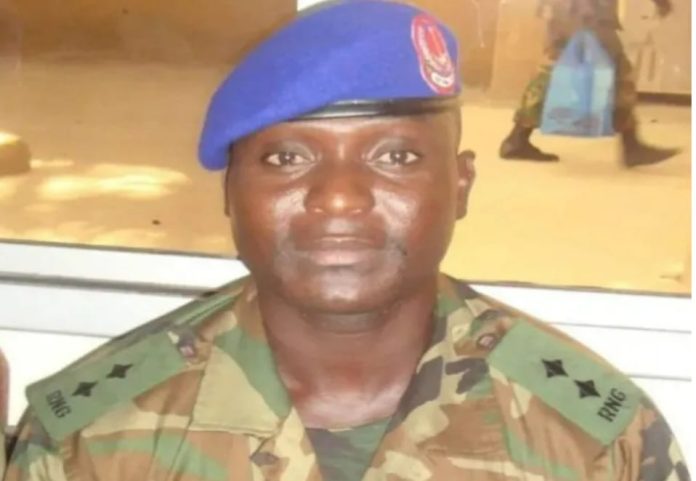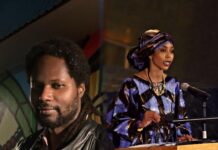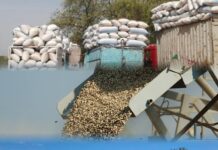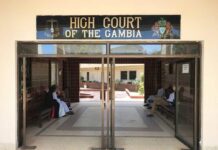A wave of Gambian journalists, civil society organizations (CSOs), and victims have descended on Denver, Colorado, as the city prepares to host the historic criminal trial of Michael Sang Correa, an alleged member of former President Yahya Jammeh’s feared “Junglers” death squad. The trial, set to begin tomorrow, Monday, April 7, at the Alfred A. Arraj United States Courthouse, marks a pivotal moment in the pursuit of justice for atrocities committed during Jammeh’s 22-year reign.
Ahead of the proceedings, victims, civil society representatives, and media personnel from The Gambia have arrived in Denver, their presence a powerful testament to the trial’s significance for a nation seeking accountability.
“This trial is a step toward healing for so many who suffered,” said Muhammad Sandeng of the Solo Sandeng Foundation, a human rights organization dedicated to justice and accountability. “We are here to ensure the voices of the survivors are heard.”
Correa, 45, faces charges of torture and conspiracy to commit torture for his alleged role in brutal acts against at least six individuals following a failed coup attempt in The Gambia in 2006. The indictment details a chilling pattern of abuse, including beatings, suffocation with plastic bags, and electric shocks—methods emblematic of the Junglers’ reign of terror under Jammeh’s dictatorship. The month-long trial is groundbreaking as the first instance of a non-U.S. citizen facing a U.S. federal court for torture committed abroad under the Extraterritorial Torture Act.
Correa’s path to this moment began in 2016 when he fled to the United States after Jammeh’s electoral defeat to Adama Barrow. Initially entering as a bodyguard for Gambia’s vice president during a United Nations visit, Correa overstayed his visa and settled in Denver, working as a day laborer. His arrest in September 2019 by the U.S. Department of Homeland Security for immigration violations paved the way for his indictment in June 2020, spurred by advocacy from groups like the Center for Justice and Accountability (CJA) and TRIAL International.
The case has captured global attention as only the third prosecution under the U.S. Torture Act, spotlighting America’s rare use of extraterritorial jurisdiction to combat international human rights abuses.
Legal experts view it as a litmus test for the U.S.’s resolve to address impunity, while for Gambians, it symbolizes a broader quest for justice.
Jammeh, now exiled in Equatorial Guinea, and his associates face accusations of crimes against humanity from The Gambia’s Truth, Reconciliation, and Reparations Commission (TRRC) as Gambia collaborates with ECOWAS to establish a hybrid court, trials like Correa’s offer a crucial interim measure.
The defense is poised to argue that Correa acted under duress, a claim that previously delayed the trial from its original September 2024 start date. Efforts to secure testimony from two Gambian witnesses—a senior intelligence official and a fellow Jungler—faltered when they demanded immunity, prompting the court to reschedule proceedings to April 2025 to accommodate depositions and safeguard Correa’s due process rights.
As the courtroom drama unfolds, Gambians and human rights advocates worldwide will watch closely. For the victims and families who journeyed thousands of miles to Denver, the trial is a chance to confront a traumatic past and honor the silenced. “We are here not just for ourselves but for all those who can no longer speak,” one survivor declared, encapsulating the stakes of this landmark case.






